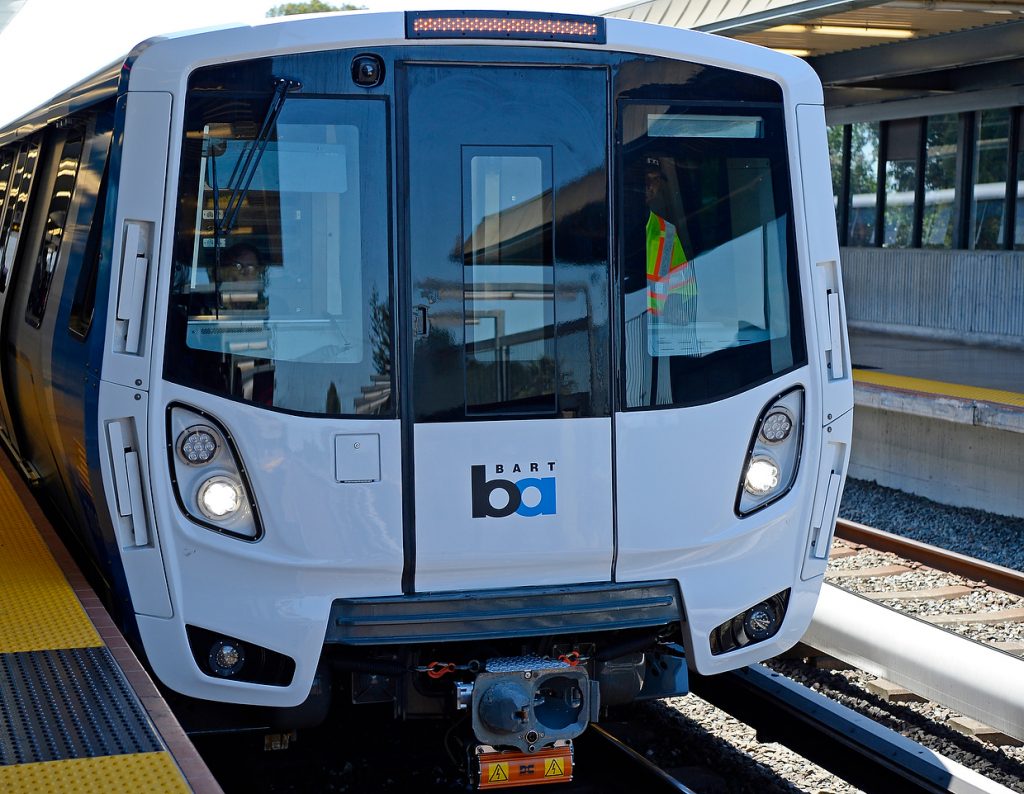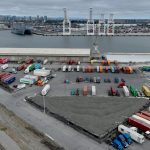Despite the price tag more than doubling in size from its initial 2014 estimate, the San Jose BART extension is facing yet another cost increase — $600 million — and time delay, according to new a federal report.
Last fall, the Santa Clara Valley Transportation Authority announced that the cost of the highly anticipated transit project had escalated to $12.2 billion with a predicted opening date of 2036 — up from $4.4 billion and a completion date of 2026 a decade prior.
That revelation sparked concern from former San Jose Mayor Sam Liccardo, one of the project’s biggest champions, who called on the agency to scale down the project. The six-mile BART extension is expected to run from the Berryessa Transit Center in north San Jose, through downtown and up to Santa Clara, effectively completing a ring of rail service around the Bay Area.
But the latest preliminary review of the project by the Federal Transit Administration — which is providing grant funding — tacked on an extra $600 million, raising the cost to $12.75 billion. Federal officials are also anticipating a later completion date, bumping the grand reveal back seven months to May 2037. The risk assessment is expected to be finalized later this spring, though Tom Maguire, VTA’s chief megaprojects officer, doesn’t expect it to change “radically” between now and then.
Maguire attributed the increase to the “ongoing change in cost environment that we face, and every infrastructure project faces, around the county.” That includes the escalating cost of labor and materials, as well as a scarcity of contractors to complete the project.
“That’s hurting everyone in our industry right now,” he said. “And for that reason, the FTA recommended that we use a more conservative factor for how we estimate costs for the future years of the project.”
This isn’t the first time the FTA predicted VTA would come in over budget. In 2022, the feds and the agency bickered over an analysis conducted by the FTA that said the project could cost $9.1 billion. At the time, VTA had a cost estimate of $6.9 million.
A report released earlier this year from the transit agency’s auditor general showed that staff engaged in a “breach of transparency” over costs around that time. While publicly refuting the $9.1 billion estimate by the federal government, VTA applied for grant funding using that figure.
Maguire, who was appointed to his role in November, said he feels pretty confident that the BART extension will top out in the $12 billion range — especially given the outside review. He said that roughly $2.5 billion of that estimate is “contingency costs” should something go awry, meaning the project could come in under budget.
But for now, Maguire said 2024 is a “make or break year for the BART program” as they need to get shovels in the ground soon to dig a hole where the $76 million tunnel boring machine will burrow deep into the dirt.
“I think from a bigger picture point of view, this project doesn’t get any cheaper,” he said. “Waiting and deferring on our promise to the voters and the taxpayers would not be the right thing to do.”
San Jose Mayor Matt Mahan, who sits on the board, said in a statement that the estimate “came in better than expected.” He cautioned though that they “will need to be extremely vigilant in the coming years to ensure the project team is spending every public dollar effectively.”
A news release sent out by the transit agency branded the increased cost as one that “closely aligns with VTA estimate.”
At a VTA Board of Directors meeting on Friday, San Jose Councilmember Dev Davis, who sits on the board, said the increase “isn’t really a small increase, even though we’re talking about $12 billion.”
Adam Buchbinder, a local transit advocate who has been critical of escalating costs, criticized both VTA and the FTA on the new estimate.
“The FTA is derelict in their duty of oversight, as is the VTA board,” he said.
Buchbinder said the board is focused on “minutiae” instead of “fundamental issues” like what he called overbuilt stations and excessive design.
“The FTA is rearranging deck chairs on the Titanic,” he said.


